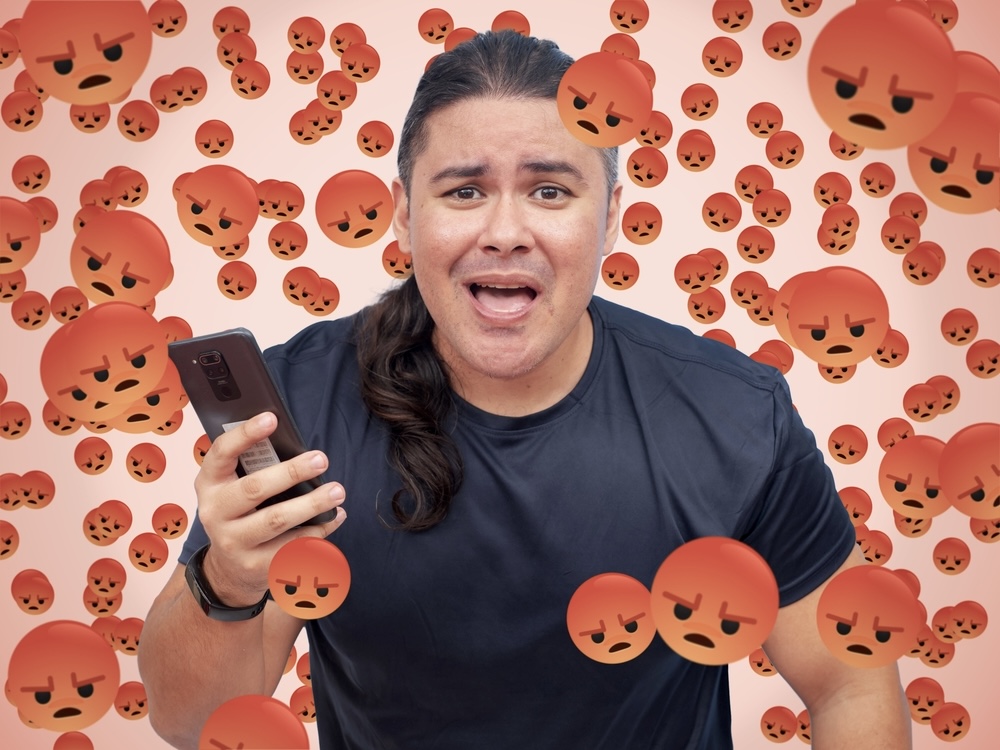Social Media and Addiction Relapse

You're scrolling through your feed, casually liking photos and videos, when suddenly you see a post that makes you pause. It's a picture of a friend at a bar, a place you used to frequent, or perhaps a memory shared by someone who once hurt you. Instantly, emotions bubble to the surface, feelings you thought were long gone.
Social media can connect us with loved ones and the broader world, but it also causes potential triggers for those in addiction recovery. It's crucial to understand the dynamics of social media use in this context. Is it merely a harmless pastime, or could it be a gateway leading back to old habits?
Contact Us Today for a Confidential Assessment.
Call (877) 959-5909 Now to Speak with a Specialist
Can social media use cause an addiction relapse?
Social media offers countless ways to connect, share, and engage. For those in recovery, this impact can be both helpful and challenging. On the positive side, it can offer a support network, connecting people with recovery communities and inspiring stories of resilience. These connections can create a sense of belonging and motivation to stay on track.
However, social media can also be full of triggers. Seeing posts from old acquaintances indulging in alcohol or substances can spark cravings. Memories of past experiences, often glamorized online, can stir emotions that might lead to a relapse. The anonymity and scope of social media can sometimes create a false sense of security, making it easier to fall back into harmful habits.
It's important to understand that social media's effects vary for each person. For some, it helps them stay clean, while for others, it becomes a temptation. The key is knowing your personal triggers and recognizing how different parts of social media influence your journey.
What are the common social media triggers to avoid?
When scrolling through social media, certain triggers can really challenge those in recovery. One big trigger is seeing content that promotes substance use, like party pics or memes glorifying drinking and drug use. These images can stir up strong cravings and memories, making it tough to resist the urge to relapse.
Another trigger is encountering people from your past who were part of the addiction journey. Their posts might bring back memories, both good and bad, sparking unhealthy nostalgia or regret. Emotional posts, like those about breakups or stressful situations, can also trigger anxiety or depression, potentially pushing someone toward using substances as a coping mechanism.
Plus, the fear of missing out (FOMO) is super common on social media. Constantly seeing others having fun at events or parties can lead to feelings of isolation or inadequacy. This can be especially tough if you're trying to rebuild your life in recovery.
To handle these triggers, it’s important to curate your social media space. Unfollow or mute accounts that often post triggering content. Adjust your feed to highlight positive, supportive communities that back your recovery journey.
How to use social media mindfully in addiction recovery
Using social media with intention can significantly impact sobriety. It provides support and connection with others on a similar journey. Here's how to leverage social platforms for staying sober.
Set Limited Screen Time
Start by defining your screen time. Choose specific times during the day to check social media and stick to them. This will prevent you from getting lost in endless scrolling, which might expose you to potential triggers.
Filter Your Content
Engage only with people who support your recovery journey, such as friends and family. Join groups that focus on healing and positivity. By blocking or muting accounts that negatively impact your mental health, you can create a safer and more supportive online space.
Maintain Perspective
Remember that social media often showcases a curated version of reality. Keeping this in mind can help you avoid falling into the comparison trap. Stay focused on your own progress and the real-life support systems you have around you.
Limit Notifications
Turn off social media notifications to reduce distractions and remain focused on your real-life activities. This encourages mindful usage and helps prioritize your mental well-being.
Take Regular Breaks
Schedule regular breaks from social media to recharge and reflect on your personal goals. Use this time to engage in offline activities that nurture your mental health and overall well-being.
Best Anaheim, CA Substance Abuse and Alcohol Addiction Treatment Center
Social media can offer support by connecting us to like-minded individuals, but it is not a substitute for professional help. If you or a loved one is struggling with substance abuse and addiction, seeking treatment at a reputable rehab center can provide the necessary tools and support for long-term recovery.
Anaheim Lighthouse is a leading substance abuse and alcohol addiction treatment center located in Anaheim, California. We offer a comprehensive approach to recovery, providing evidence-based therapies, individualized treatment plans, and ongoing support for our clients.















